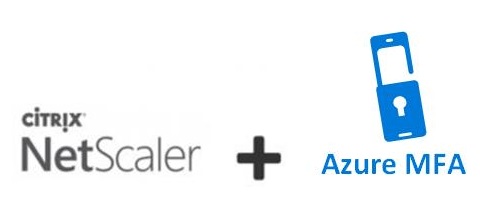

In this situation, the NPS server identifies additional VPN server requests as a duplicate request.

The user may not have successfully responded to the MFA prompt, so the Azure AD Multi-Factor Authentication NPS extension is waiting for that event to complete. The NPS server may not respond to the VPN server's original request before the connection times out as the MFA request may still be being processed. If the connection times out, the VPN server sends the request again. In the authentication scenario in this article, VPN servers send the request and wait for a response. If so, the packet is resent as the sender assumes the packet didn't reach the destination. After a period of time, the connection may time out. RADIUS protocol behavior and the NPS extensionĪs RADIUS is a UDP protocol, the sender assumes packet loss and awaits a response. The following diagram illustrates this high-level authentication request flow:
 Azure AD MFA communicates with Azure Active Directory (Azure AD) to retrieve the user's details and performs the secondary authentication using a verification method configured to the user. Their default authentication method will be used even if it's been disabled in the tenant authentication methods and MFA policies. They cannot choose an alternative method. Users must have access to their default authentication method to complete the MFA requirement. Once the extension receives the response, and if the MFA challenge succeeds, it completes the authentication request by providing the NPS server with security tokens that include an MFA claim, issued by Azure STS.
Azure AD MFA communicates with Azure Active Directory (Azure AD) to retrieve the user's details and performs the secondary authentication using a verification method configured to the user. Their default authentication method will be used even if it's been disabled in the tenant authentication methods and MFA policies. They cannot choose an alternative method. Users must have access to their default authentication method to complete the MFA requirement. Once the extension receives the response, and if the MFA challenge succeeds, it completes the authentication request by providing the NPS server with security tokens that include an MFA claim, issued by Azure STS.  NPS Extension triggers a request to Azure AD Multi-Factor Authentication for the secondary authentication. NPS Server connects to Active Directory Domain Services (AD DS) to perform the primary authentication for the RADIUS requests and, upon success, passes the request to any installed extensions. NAS/VPN Server receives requests from VPN clients and converts them into RADIUS requests to NPS servers. When you use the NPS extension for Azure AD Multi-Factor Authentication, the authentication flow includes the following components: The NPS extension acts as an adapter between RADIUS and cloud-based Azure AD Multi-Factor Authentication to provide a second factor of authentication for federated or synced users. With the NPS extension, you can add phone call, text message, or phone app verification to your existing authentication flow without having to install, configure, and maintain new servers. The Network Policy Server (NPS) extension for Azure AD Multi-Factor Authentication adds cloud-based MFA capabilities to your authentication infrastructure using your existing servers.
NPS Extension triggers a request to Azure AD Multi-Factor Authentication for the secondary authentication. NPS Server connects to Active Directory Domain Services (AD DS) to perform the primary authentication for the RADIUS requests and, upon success, passes the request to any installed extensions. NAS/VPN Server receives requests from VPN clients and converts them into RADIUS requests to NPS servers. When you use the NPS extension for Azure AD Multi-Factor Authentication, the authentication flow includes the following components: The NPS extension acts as an adapter between RADIUS and cloud-based Azure AD Multi-Factor Authentication to provide a second factor of authentication for federated or synced users. With the NPS extension, you can add phone call, text message, or phone app verification to your existing authentication flow without having to install, configure, and maintain new servers. The Network Policy Server (NPS) extension for Azure AD Multi-Factor Authentication adds cloud-based MFA capabilities to your authentication infrastructure using your existing servers.








 0 kommentar(er)
0 kommentar(er)
